Vanguard University runway show combats cruelties of ‘fast fashion’ one stitch at a time
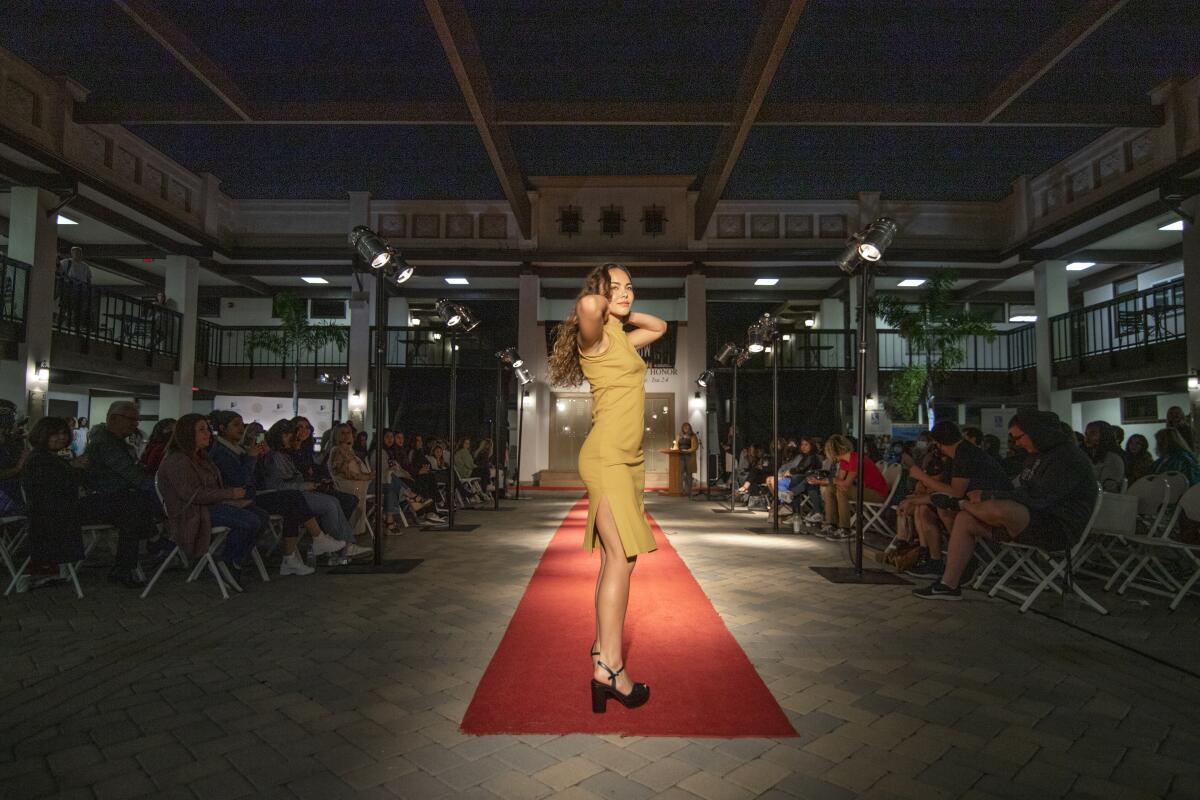
- Share via
An outdoor fashion show Thursday at Vanguard University looked like any typical catwalk event — models walked down a red carpet in haute couture-looking creations and posed fiercely as cameras clicked — but underlying the evening was a much more serious message.
Sponsored by the campus’ Live2Free club, the annual Fair Trade Fashion Show aims to raise awareness about the dangers of “fast fashion,” a trend inspired by an increasing demand for cheap and easily accessible attire that often gets discarded after a single wear.
The international garment industry meets that demand by employing laborers, typically women and children, at wages that fail to sustain them and in sweatshops where workers face inhumane conditions.
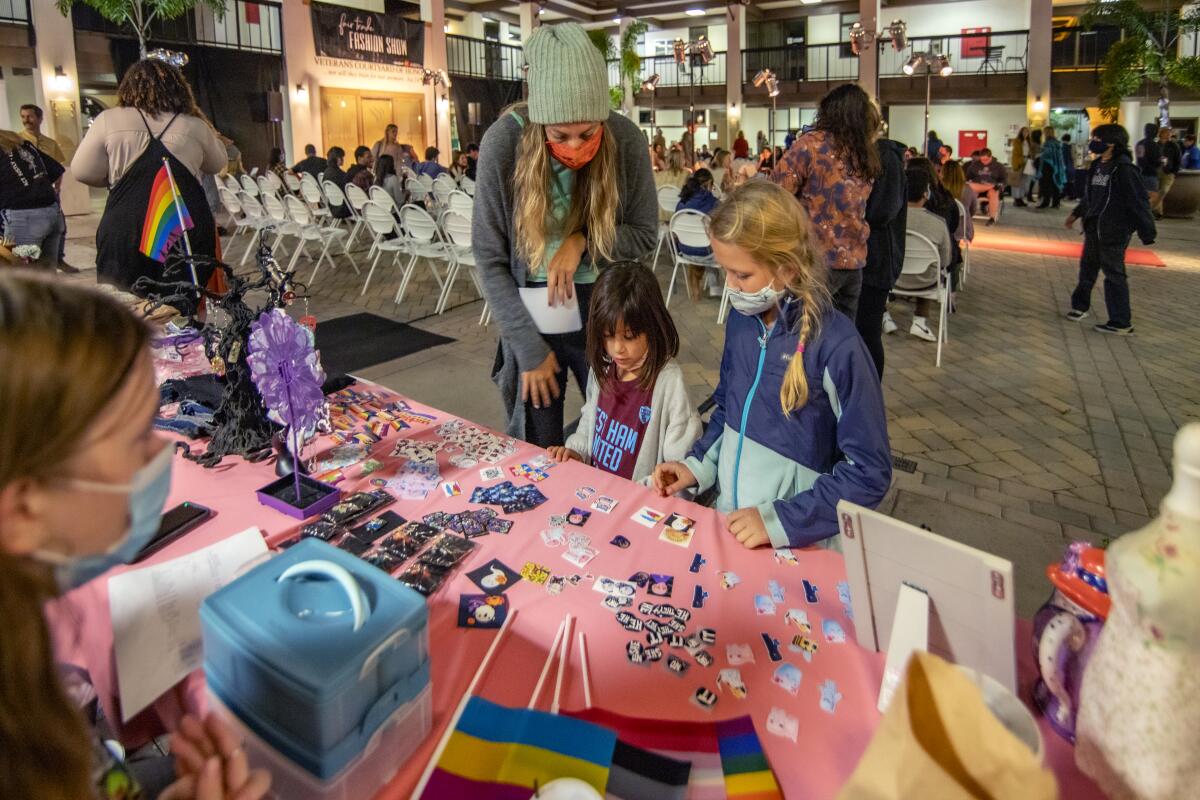
“Most people have heard about sweatshops in China or Bangladesh, about people working in a factory all day. I think it just doesn’t sink into the everyday reality of most people,” said senior Alex Niebaum, club president and lead organizer of the event. “We want to fight that fast fashion that drives labor exploitation.”
Live2Free’s mission is to challenge young people to make choices that respect the dignity of individuals across the globe, slow the demand that drives modern-day slavery and to work together to rebuild and restore the lives of human trafficking victims.
Vanguard adjunct professor Ruthi Hanchett advises the club and teaches courses in human trafficking through the campus’ Global Center for Women and Justice. In both capacities, she empowers students to not only learn the wider issues around exploitation but to take action in their own lives to stop it.
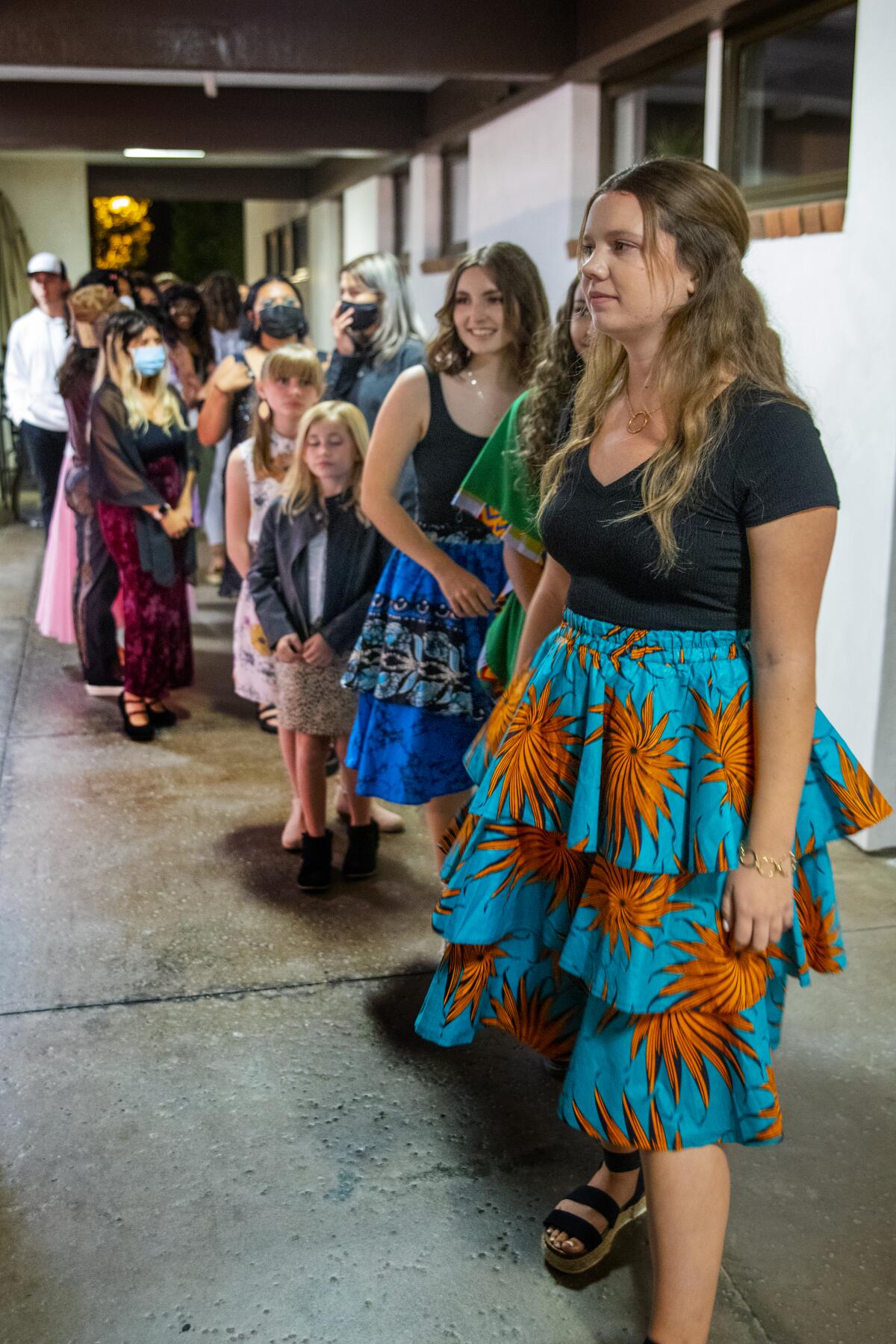
Hanchett described a vicious cycle of consumers demanding one-off items that are cheap and cheaply made and a clothing industry that, feeling the pressure of a constant demand for low-priced goods, squeezes the workforce to produce more for less money.
“We don’t see the cost, but we’re trying to make that more visible,” she said. “As people who want to fight human trafficking, it’s up to us to figure out how to realign our values.”
To that end, Thursday’s show featured vendors from throughout Southern California who offer upcycled or repurposed goods. Other booths featured fair trade certified items, created by laborers across the globe, including victims of human trafficking, and sold at decent prices with proceeds going back to the producers.
Vanguard sophomore and Live2Free member Makaela Brass operated a table for her personal upcycling label Remnants of Brass, an effort that turns unwanted denim and jeans into stylish clutches and tote bags.
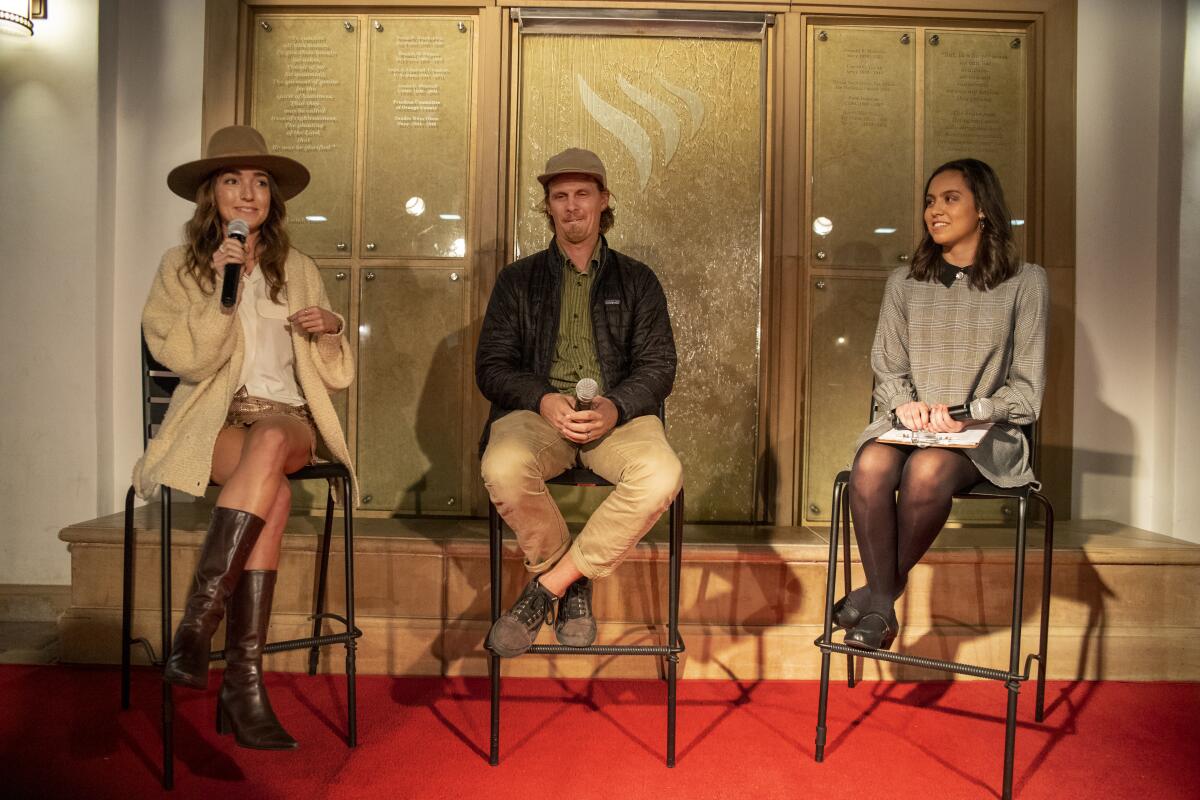
“I learned about human trafficking in high school and wanted to know more about it,” she said of her decision to join the club and do something to combat fast fashion. “Many people see cute clothes and don’t realize how people are exploited.”
After a panel discussion with two Vanguard alumni — Travis Hartanov, who co-founded fair-trade companies Known Supply and Krochet Kids International, and upcycling stylist and social media influencer Rachel Elizabeth Bennet — it was time for the runway show to begin.
Among the student models was Matthew Holgate, president of the Student Government Assn. The 21-year-old senior interns with the Global Center for Women and Justice and is working toward a 12-unit anti-human trafficking certificate. When he heard the fashion show was looking for students to model fair trade brands, he signed up.
“Labor trafficking is actually the biggest piece of human trafficking there is,” Holgate said. “People don’t see it because it’s not illegal to wash dishes or stitch clothes or piece things together. I’m modeling to bring awareness to trafficking but also to educate people there are different ways to fight it.”
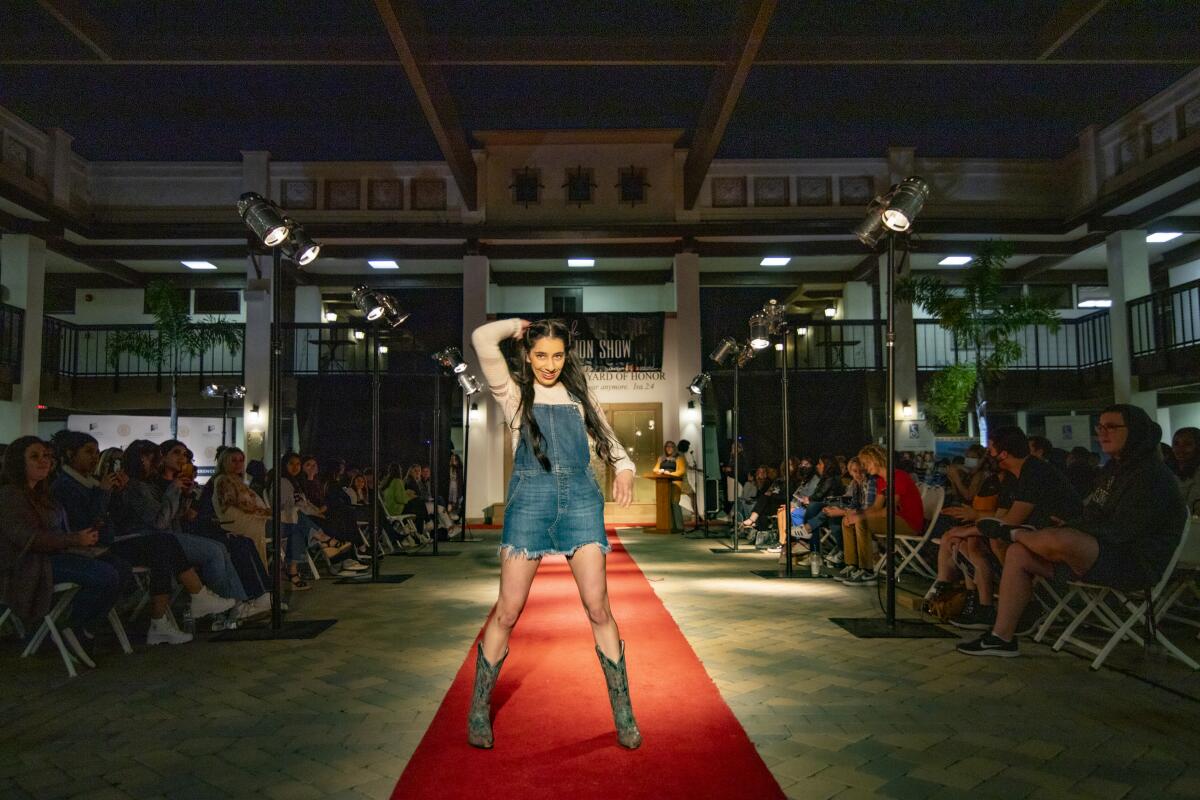
Niebaum said while learning about human exploitation and trafficking can be a heavy burden to bear, Live2Free members worked with partners Goodwill of Orange County, Soroptimist International and Samueli Academy’s Opia Upcycling program to “celebrate what’s being done right in the community.”
“Often, when we talk about human trafficking, we’re talking about what’s going wrong,” the 21-year-old said. “Those conversations are definitely important, but there are also people being active in the community. We’re just wanting to promote the good tonight.”
All the latest on Orange County from Orange County.
Get our free TimesOC newsletter.
You may occasionally receive promotional content from the Daily Pilot.







